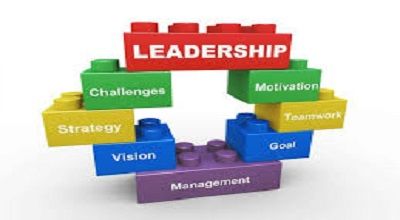Leadership Skills
Leadership skills are the abilities and qualities that an individual possesses to effectively guide others. Direct, manage, or inspire a group toward achieving a common goal. These skills are crucial in various settings, from corporate environments to community projects. They play a significant role in an individual’s professional development and career advancement. Here’s an overview of key leadership skills, along with examples and recent trends, structured under specific headings:
1. Communication
Effective communication is at the heart of good leadership. It involves clearly conveying ideas, listening actively, and engaging in meaningful dialogues with team members. Leaders must be adept at both verbal and written communication.
Example: A project manager outlines the project goals, assigns tasks, and provides constructive feedback to team members. Ensuring everyone is on the same page and motivated.
2. Decision-Making
Good leaders make timely, informed decisions by analyzing available information, weighing the pros and cons, and considering the potential impact on the team and project.
Example: A business leader decides to pivot the company’s strategy based on market research and feedback from the team, demonstrating flexibility and strategic thinking.
3. Problem-Solving
Leaders are often faced with challenges that require quick and effective problem-solving skills. This involves identifying the root cause of issues, generating solutions, and implementing them efficiently.
Example: A team leader identifies a bottleneck in the production process and collaborates with the team to develop and implement a solution that increases efficiency.
4. Empathy
Understanding and sharing the feelings of others is crucial for effective leadership. Empathy helps build trust, resolve conflicts, and improve team dynamics.
Example: A supervisor notices a team member struggling with personal issues and offers support and flexibility in work arrangements, fostering a supportive and understanding work environment.
5. Adaptability
The ability to adapt to change and lead through uncertainty is more important than ever. Leaders must be flexible, open to new ideas, and ready to pivot strategies as needed.
Example: In response to a sudden shift to remote work, a team leader quickly adapts the team’s processes and communication methods to maintain productivity and morale.
6. Motivation
Inspiring and motivating team members to achieve their best and pursue common goals is a key leadership skill. This includes recognizing achievements, setting clear objectives, and creating a positive and energizing work environment.
Example: A manager sets challenging yet achievable goals for the team and recognizes their achievements with rewards and public acknowledgment, boosting morale and motivation.
Recent Trends in Leadership
- Emphasis on Emotional Intelligence: Modern leadership increasingly values emotional intelligence, including self-awareness, self-regulation, and social skills, as essential for leading effectively.
- Focus on Diversity and Inclusion: Leaders are now expected to foster inclusive environments that value diversity, ensuring all team members feel valued and can contribute fully.
- Agile Leadership: The fast-paced and constantly changing business environment demands leaders who can operate in agile and flexible ways, quickly adapting to new challenges and opportunities.
Conclusion
These examples and trends highlight the evolving nature of leadership skills in today’s dynamic and diverse work environments. Developing these skills can significantly impact an individual’s ability to lead effectively and achieve success in various endeavors.





